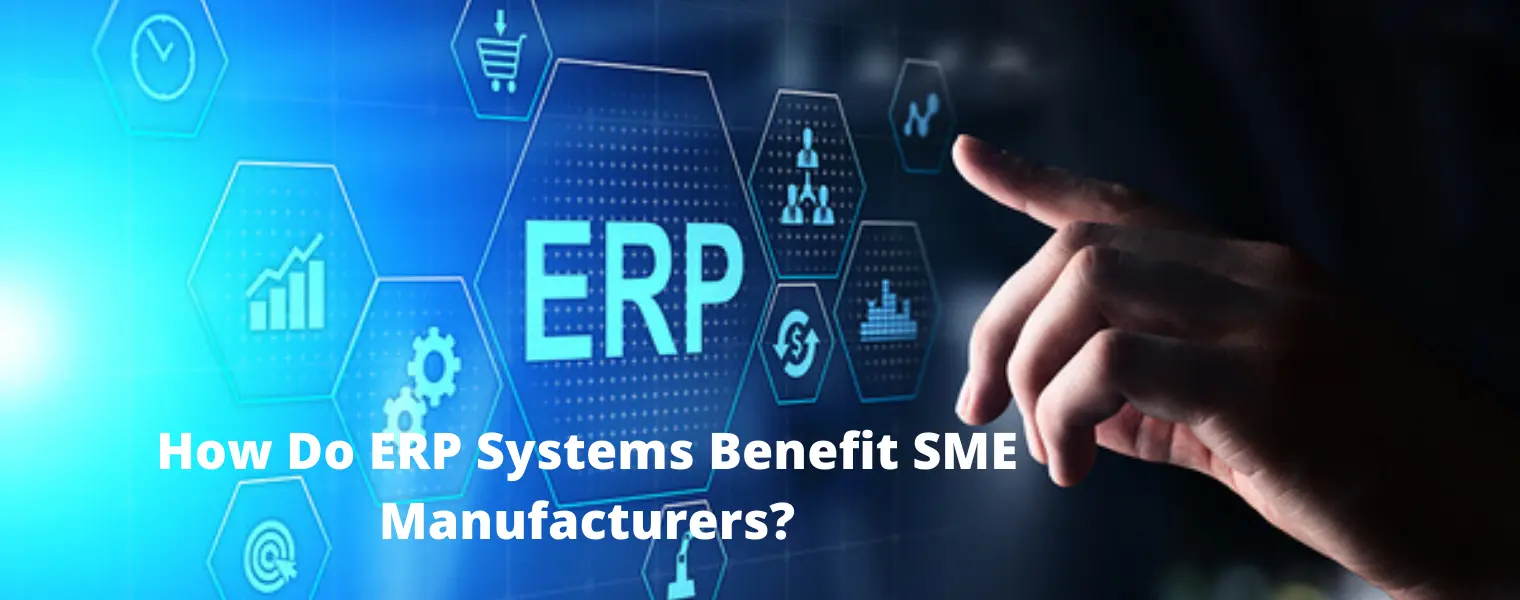
To manage their corporate operations, small and medium manufacturers rely on a manual or spreadsheet-based model, a collection of a few software, or, at the most, a legacy/conventional ERP system. Low operating margins, long order-to-cash processes, delayed client payments, and rising overhead costs, along with the COVID-19 epidemic, have made survival more challenging. Many of them have been functioning with skeleton crews, and some have even closed their doors. Given the highly competitive and dynamic nature of the manufacturing industry, it's no surprise that manufacturers require tremendously efficient business software to operate their day-to-day operations. It's achievable thanks to modern ERP systems. To improve the way small and medium manufacturers conduct their business processes and work orders, well-designed ERP software combines innovative technologies that provide transparency and intrinsic control capabilities on business data.
An industry-ready ERP solution integrates finance, HR, project management, and customer support with core complicated manufacturing processes to ensure that all of these operations run smoothly and that your company maintains a competitive advantage. These are the applications of ERP software and how they serve small and medium-sized businesses.
One of the most important advantages that an ERP solution delivers to a manufacturing organization is automation. Process automation not only increases overall production speed, but it also allows you to reduce errors in mission-critical manufacturing operations. Your raw material, for example, will never go out of stock if your supply chain management is automated and inventory re-orders levels are properly configured. Similarly, when switching from manual to automated procedures, human dependency is reduced, data becomes more precise, and processes become more straightforward. As a result, your productivity rises, your customer experience improves, and your earnings rise.
Purchasing software as a specific need develops is common throughout a company's early stages of growth. These results in data and information silos throughout the organization's functions. Costly integrations are required to easily obtain critical information from several systems. When this is combined with internal squabbles over which data set is more accurate, the decision-making process slows dramatically. Cloud ERP software allows teams to communicate more successfully by providing precise, real-time data. Sales and marketing may build promotions for products that are truly in stock using real-time inventory data, resulting in more revenue and happier consumers.
Errors in production and material waste are costly. They not only cause delays in the delivery schedule, but they also have an impact on the client experience. To ensure that there are fewer wastages or production slippages, conduct activities correctly in the first attempt. All of the processes, including purchasing, inventory, production, sales, finances, and others, are tightly simplified and connected to a single database in modern ERP for SMEs. This ensures that all data entered or modified from any source is reflected centrally across all modules. Manufacturing ERP software enables teams from many departments to get real-time updates on production status. This enables them to swiftly identify the abnormality, respond promptly, and make the necessary adjustments to fulfill the deadlines.
The longer a process takes to complete, the more expensive it becomes. Errors and reworks also boost expenses. The ERP system's consolidated database considerably reduces inefficiencies and helps SME manufacturing organizations cut operational costs. ERP software streamlines and automates operations while also keeping track of production deliverables. The system generates reports based on the available data to assist you in addressing your resource capacities for meeting market needs while keeping deadlines and budgets under control.
The cloud-based ERP system allowed users to view and update real-time data from any device, allowing them to work from anywhere within or outside the facility. The response time, speed, and efficiency of production processes are all improved when information is visible and accurate. Greater operational insight allows you to quickly identify operational bottlenecks, establish effective strategies to solve them, and make the required changes to improve workflows.
Teams must communicate with one another. Tools for successful communication are included in ERP for the industrial business. It allows your teams to cooperate digitally and provide project updates on a regular basis, essentially minimizing the possibility of misinterpretations of the job at hand. This increased ability to communicate effectively decreases production errors and delays while also creating a truly outstanding working atmosphere for all team members.
The ability of a corporation to adapt to unforeseeable changes is a critical aspect in its success. With the support of reliable data and real-time business insights, this is achievable. A complete manufacturing ERP solution provides you with accurate data, allowing you to make swift strategic business decisions. The system gives you direct access to various performance measures, allowing you to make fast adjustments to workflows and respond to market developments. Furthermore, if you have all of the necessary information, you will be well equipped to overcome obstacles and seize chances.
Your company can better strategize and adapt to shifting market demands with DoFort ERP Software. Small and medium firms can use DoFort to make their processes more efficient, organized, and cost-effective.
Welcome to DoFort !